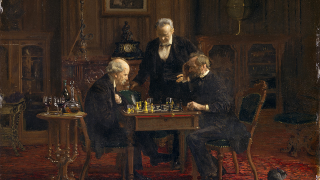
Why people believe in the soul (2): near-death and mystical experiences
In the past entry we examined how “out-of-body experiences” (OBEs) might have an influence in the belief in a “soul” separated from the body. Now we shall take a look to the other two types of “abnormal” psychological experiences that are surely related to that belief: “near-death experiences” (NDEs) and “mystical experiences” (MEs). Near-death experiences […]








